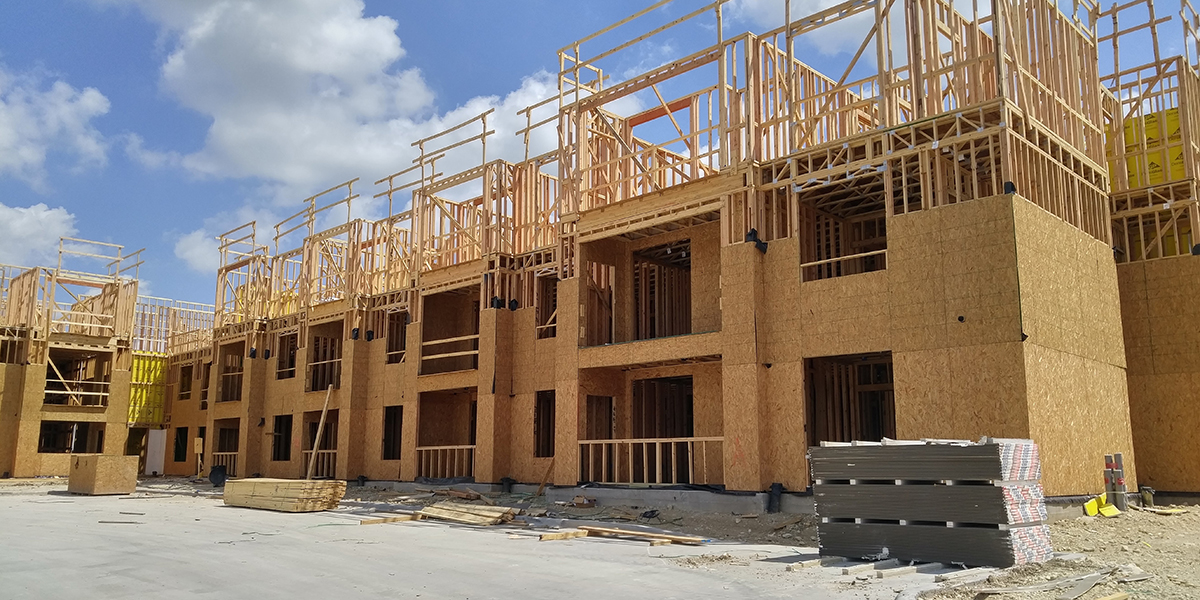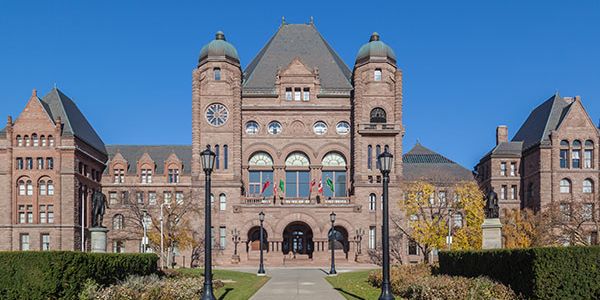In this edition:
- Economic rebound in 2022 less than losses in 2021: StatCan
- Bank of Canada Governing Council debates strong US economy and weaker-than-expected China
- Ontario makes investment in developing Francophone businesses
- Total value of building permits drops again while BC residential construction surges
- Niagara Falls alerts residents and businesses to pre-authorized payment text scam
- Rising number of job actions in Niagara sign that workers are fed up, experts say
- Government of Canada launches Round Five of Housing Supply Challenge
- Focus on Climate

Economic rebound in 2022 less than losses in 2021: StatCan
Canada’s real gross domestic product (GDP) grew 3.8% in 2022, following a 5.3% increase in 2021, a new Statistics Canada report has shown. Growth in real GDP last year was driven by household spending, inventory accumulation and exports.
Higher spending on services (+9.1%) drove the 5.1% increase in real household spending. As COVID-19 restrictions eased throughout 2022, households spent more on travelling abroad, air transport, and food and non-alcoholic beverage services.
ADVERTISEMENT

Bank of Canada Governing Council debates strong US economy and weaker-than-expected China
In a summary of their October deliberations, the Bank of Canada’s Governing Council felt that global growth had been moderating, and inflation had been easing across most economies, consistent with the Bank’s projection in July. However, the composition of global growth had shifted, with the US economy proving to be more resilient and China’s economy more sluggish than expected.
Inflation in the United States was expected to ease further as higher policy interest rates and tighter financial conditions slowed demand, but in China, foreign direct investment had dropped considerably, and the problems in its property sector continued to weigh on confidence and economic growth.
Ontario makes investment in developing Francophone businesses
The Ontario government is investing $800,000 to help support Francophone economic development across the province. The funding is being delivered through the Francophone Economic Development Strategy and represents a 60 per cent increase over last year.

The total monthly value of building permits in Canada decreased 6.5% in September to $11.2 billion, new data released today indicates, with most of the drop attributed to the monthly decline in the institutional component.
The total monthly value of residential permits increased 4.3% to $7.2 billion in September, led by a 37.2% monthly increase in construction intentions in British Columbia. Residential permits issued in the census metropolitan areas (CMAs) of Vancouver, Kelowna, and Victoria together made up 77.3% of the value of residential permits and 79.9% of the number of new dwellings authorized for the province in September.

Niagara Falls alerts residents and businesses to pre-authorized payment text scam
The City of Niagara Falls is alerting ratepayers to a text message scam asking residents to sign up for Pre-Authorized Tax or Water Payments. Be advised the City of Niagara Falls does not send text messages for this service.
If you, or someone you know, receives one of these messages, do not click on any links and delete them. Residents can only sign up for Pre-Authorized Payments by completing an application form provided by the City.

About a decade ago, Brock University labour studies professor Larry Savage co-authored a book on Niagara’s labour movement, “Union Power Solidarity and Struggle in Niagara.” Written alongside Brock labour historian Carmela Patrias, one chapter was dedicated to the 1970s labour movement — a period which saw one in four Canadian workers go on strike.
It was followed by years of substantial and steady drops in the strike rate, bottoming out in 2020 when the pandemic launched the reversal of a decades-long trend.
While Savage clarifies the country is unlikely to see those strike numbers again — the current climate he said “pales in comparison” to the job actions of the mid-1970s — it is witnessing an uptick in significant mobilization.
Government of Canada launches Round Five of Housing Supply Challenge
To help find innovative and faster ways to increase Canada’s housing supply, Minister Sean Fraser announced $65 million in funding for Round Five of the Housing Supply Challenge. Additionally, Minister Fraser announced $18.1 million in funding to support the Action Research on Chronic Homelessness (ARCH) initiative. This initiative will build on the Government of Canada’s commitment to ending chronic homelessness.
Round Five of the Housing Supply Challenge, Level-Up, will mobilize and enable industry players to adopt system-level solutions that will help produce housing at a faster rate, and make the entire process easier and more cost effective.
Did you know?
The World Economic Forum ranks Canadian quality-of-life as second only to Finland.
Focus on Climate
Trudeau’s curious decision to detonate his own carbon tax
Through the Daily Updates, the GNCC aims to deliver important business news in a timely manner. We disseminate all news and information we feel will be important to businesses. Inclusion in the Daily Update is not an endorsement by the GNCC.






